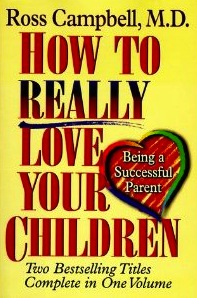
 If there’s one thing I’ve learned about posting on parenting over the years, it’s that the theological import varies tremendously according to the point of view of the reader/hearer. That is, if your default is to put yourself in the position of child, talk of the unconditional love of a parent will be pure Gospel. “Love” will be interpreted as “belovedness”, with oneself as the object. Perhaps you’ll be reminded of a time you were let off the hook, or shown some sympathy by someone in authority, how it made an enormous difference, etc. You’ll hear an echo of Grace, in other words.
If there’s one thing I’ve learned about posting on parenting over the years, it’s that the theological import varies tremendously according to the point of view of the reader/hearer. That is, if your default is to put yourself in the position of child, talk of the unconditional love of a parent will be pure Gospel. “Love” will be interpreted as “belovedness”, with oneself as the object. Perhaps you’ll be reminded of a time you were let off the hook, or shown some sympathy by someone in authority, how it made an enormous difference, etc. You’ll hear an echo of Grace, in other words.
But if you’re reading the exact same article from the point of view of a parent (as is fairly instinctual, given that most such articles are written with that audience in mind), “love” will be heard as command–and therefore condemnation–with oneself as subject. Suddenly all the times you’ve lost your patience with your kid, or you’ve found it impossible to keep your mouth shut will spring to mind. All the ways you’ve failed to love perfectly. You will do more than hear the Law, you will experience its crushing power.
Neither perspective is “correct”. Indeed, even if one were, it’s not as though we consciously choose how to hear such things. This is merely to say that the exact same story or article can communicate opposite things to different people, depending on their immediate circumstantial (or emotional) context. This is what makes “love” so tricky, theologically – the command to love is Law (Matthew 22:37, or George Strait’s “You Can’t Make a Heart Love Somebody”), the reality of undeserved belovedness is Gospel (John 3:16). As a fascinating case in point, here’s a video of Warren Buffet talking about unconditional love:
As a child, this is a beautiful and comforting statement. That you are loved unconditionally by your parent – AMEN! Who wouldn’t want that?! But to a parent’s ear, such a sentiment is another matter entirely. In fact, a more frightening child-rearing standard could not be articulated. Which is where The New York Times comes in, specifically the article by Dr. Richard Friedman, “Accepting That Good Parents May Plant Bad Seeds.” If you heard Buffett as Gospel, this will be Law – and vice versa, i.e. bad news for kids, but good news for parents. In fact, the last couple lines strike me as containing a note of real gospel freedom when it comes to the raising of children, something we almost never hear in our particular, um, context:
Our bent is to see misbehavior as psychopathology that needs treatment; there is no such thing as a bad person, just a sick one. But maybe this young man was just not a nice person.
For years, mental health professionals were trained to see children as mere products of their environment who were intrinsically good until influenced otherwise; where there is chronic bad behavior, there must be a bad parent behind it. But while I do not mean to let bad parents off the hook — sadly, there are all too many of them, from malignant to merely apathetic — the fact remains that perfectly decent parents can produce toxic children.
We marvel at the resilient child who survives the most toxic parents and home environment and goes on to a life of success. Yet the converse — the notion that some children might be the bad seeds of more or less decent parents — is hard to take.
It goes against the grain not just because it seems like such a grim and pessimistic judgment, but because it violates a prevailing social belief that people have a nearly limitless potential for change and self-improvement.
For better or worse, parents have limited power to influence their children. That is why they should not be so fast to take all the blame — or credit — for everything that their children become.
Suffice it to say, parenting articles and books and philosophies are freighted with Law/Gospel TNT, which make them great if occasionally frustrating “copy”. And we’re not in danger of running out of material. Our perspective may shift, depending on the day/mood/lunch menu; the content of the parenting trend may change (the fact of it won’t); what doesn’t shift, however, is the that Gospel truth that while we may not all be parents–to say nothing of good parents–we are all children. Theologically speaking, that’s our default. And yet the even deeper, bedrock Gospel truth is that our Father is loving, not just of imperfect parents but of the bad seeds themselves. Take it away, Carl!
[youtube=http://www.youtube.com/watch?v=9EeSuuCwaQ4&w=600]

COMMENTS
4 responses to “The Law and Gospel of that Crazy Little Thing Called “Love”, or The Best Advice Warren Buffett Ever Received”
Leave a Reply













I'm fairly sure that that was the Beach Boys final 'official' video. A characteristically strange/awkward choice for the follow-up to Kokomo. An underwhelming last gasp of Carl Wilson's influence/leadership on/of the group…
That song and video is like a car wreck. It is really bad and terrible, but you can't help but slow down and take look or listen.